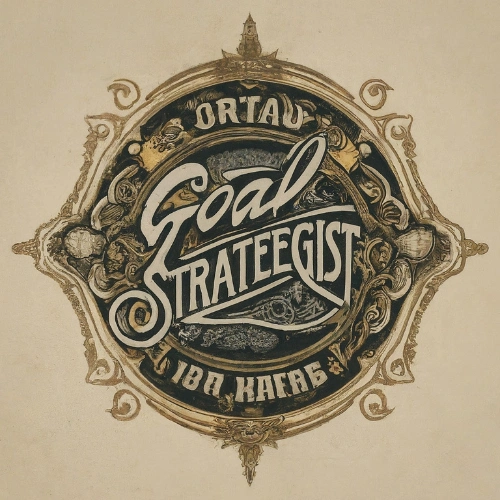Embarking on the journey of psychotherapy, you’re not just diving into a process; you’re setting the stage for transformation. It’s about uncovering the layers of your mind, to foster growth, healing, and self-discovery. But what exactly are the goals you’re aiming to achieve through this therapeutic odyssey?
Psychotherapy isn’t a one-size-fits-all; it’s tailored to help you navigate life’s complexities. Whether it’s managing emotions, improving relationships, or overcoming past traumas, the goals are as unique as you are. Let’s explore the core objectives that make psychotherapy a beacon for those seeking change.
Understanding the Basics of Psychotherapy
Psychotherapy, also referred to as talk therapy, is a method used to treat mental health issues by engaging in dialogue with a mental health professional. At its core, psychotherapy aims to empower you with the psychological tools to cope with life’s challenges, both current and future.
Mental health professionals guide the therapy process, leveraging a variety of techniques tailored to your personal needs. These professionals include psychologists, psychiatrists, counselors, and social workers, each with their specialized skills and approaches.
The therapy journey begins with assessment and diagnosis. It’s a critical step—you’ll discuss your concerns, symptoms, and goals. This information lays the groundwork for crafting a treatment plan that addresses your unique situation.
Psychotherapy sessions vary in frequency and duration, but they typically follow a structured format:
- Weekly or bi-weekly meetings
- 45 to 60 minutes per session
- Can be short-term or extend over years
The environment is designed to be a safe space, completely confidential and free from judgment, enabling open and honest communication.
Common approaches in psychotherapy include:
- Cognitive Behavioral Therapy (CBT): Focuses on identifying and changing negative thought patterns.
- Psychodynamic Therapy: Aims to uncover unconscious motives that may be driving behavior.
- Humanistic Therapy: Centers on your individual experiences and emphasizes personal growth and fulfillment.
Throughout your therapeutic journey, you may explore areas such as emotional regulation, stress management, and coping mechanisms for dealing with anxiety, depression, or other mental disorders. Additionally, psychotherapy often delves into improving interpersonal relationships, boosting self-esteem, and fostering a greater understanding of the emotions and experiences that shape your actions.
Remember, psychotherapy’s goals evolve with you—what begins as a quest to manage symptoms may blossom into a path toward significant personal development. Your active participation is critical to success in therapy, and your openness to change can profoundly influence your experience.
Goal 1: Healing from Past Traumas
Healing from past traumas is often a central goal in psychotherapy sessions. When you’re burdened by unresolved issues from your past, it can feel like you’re stuck in an emotional quagmire, unable to move forward. Therapists understand that traumatic experiences can shape your feelings, thoughts, and behaviors, sometimes in ways that you may not consciously recognize.
Trauma-focused therapy aims to help you unpack these past events, allowing you to understand their impact on your current life. By gently confronting these painful memories, you can start the process of healing. This often involves learning new coping strategies to manage distressing emotions and thoughts that arise when you’re reminded of these experiences.
Your therapist may use a variety of techniques to assist you, including:
- Exposure therapy
- EMDR (Eye Movement Desensitization and Reprocessing)
- Cognitive restructuring
- Narrative therapy
The journey to healing isn’t the same for everyone. You should expect your path to be as unique as your personal history. The timeline for achieving this goal can vary significantly, depending on factors such as the nature of your trauma, your current life circumstances, and your level of support outside of therapy.
A key aspect of healing from trauma within the therapeutic setting is the establishment of a safe, non-judgmental space. It’s crucial that you feel secure enough to openly express your feelings and experiences. A strong therapeutic alliance between you and your therapist is indispensable as it lays the foundation for effective treatment and recovery.
As you progress, you might discover strengths and resilience you didn’t know you had. Overcoming the challenges posed by past traumas can be a transformative experience, leading to profound personal growth and a newfound sense of empowerment. Your therapist’s role is to guide and support you through this process, empowering you to reclaim agency over your life.
Goal 2: Managing and Coping with Emotions
In the journey of psychotherapy, you’ll find that managing and coping with emotions is a pivotal goal. It’s imperative to grasp that emotions aren’t just feelings; they guide your interactions with the world and influence your decisions. However, when these emotions become overwhelming or unmanageable, they can lead to distress and disrupt your daily life.
The therapeutic environment presents a unique space where you can explore and understand your emotional patterns. Your therapist works with you to identify the triggers that spark intense emotional responses. These triggers could be rooted in current situations or linked back to past traumas addressed in therapy sessions. By recognizing these triggers, you begin to gain control over your reactions and develop healthier emotional responses.
Learning emotion regulation strategies is a vital component of psychotherapy. Techniques such as deep breathing, mindfulness, and meditation are often introduced to help you manage anxiety and stress levels. Over time, these strategies can become second nature, allowing you to navigate challenging emotions with greater ease.
You’ll also encounter cognitive restructuring as part of this goal. It’s a practice where you learn to challenge and change unhelpful thought patterns that contribute to emotional distress. With your therapist’s guidance, you’ll reframe negative thoughts and develop a more balanced and constructive outlook, leading to improved emotional well-being.
Effective coping mechanisms aren’t just about dealing with the present; they’re also about preparing for future emotional challenges. By building resilience through therapy, you cultivate a toolkit of skills that can support you in facing life’s ups and downs. Whether it’s a job loss, a relationship breakdown, or just the stress of daily life, you’ll be equipped to handle these situations with a renewed sense of confidence.
Remember, mastering emotion management doesn’t happen overnight. It’s a journey of self-discovery and skill-building that unfolds one step at a time. With each therapy session, you’ll uncover more about your emotional world, ensuring that you’re better prepared for whatever life throws your way.
Goal 3: Improving Relationships and Communication
Navigating interpersonal dynamics is often complex and can lead to stress if not handled adeptly. Psychotherapy aims to enhance your communication skills, paving the way for healthier and more fulfilling relationships. Whether it’s with family, friends, or co-workers, how you relate to others has a significant impact on your overall well-being.
In therapy, you’ll learn to express yourself more effectively. This doesn’t just include talking but also involves active listening and non-verbal communication. Therapists often use role-playing or modeling techniques to help you practice new skills in a safe environment before applying them in real-life interactions.
You’ll also work on boundary setting. Knowing where you stand and being able to communicate your needs respectfully can prevent misunderstandings and conflicts. It’s about striking a balance between your own needs and those of others, leading to mutually respectful and supportive relationships.
Another critical aspect is handling conflict. Psychotherapy can provide you with strategies to resolve disputes in a way that strengthens, rather than erodes, relationships. By understanding your conflict style and the underlying emotions that drive it, you can begin to approach disagreements with more composure and empathy.
- Communication Techniques
- Active listening
- Clear expression of needs
- Non-verbal cues
- Conflict Resolution
- Identifying and addressing the source of conflict
- Developing negotiation skills
- Applying empathy and understanding
Therapy helps in recognizing unhealthy patterns in your interactions and teaches you how to break these cycles. Whether it’s codependency, avoidance, or aggression that’s shaping your relational world, you’ll gain insight and develop healthier approaches. With better relationships and communication, you’re likely to see an improvement in your overall life satisfaction and mental health.
Goal 4: Enhancing Self-Awareness and Self-Discovery
As you embark on your journey through psychotherapy, enhancing self-awareness and self-discovery emerges as a pivotal goal. Delving into these aspects of the self can lead to profound personal growth and a more fulfilling life.
Discovering Your True Self
By participating in psychotherapy, you’ll be encouraged to explore your inner thoughts, feelings, and motivations. This exploration is a cornerstone of self-awareness. Therapists utilize a variety of techniques to facilitate this process:
- Guided reflection
- Journaling exercises
- Mindfulness practices
These tools not only provide insight into your behavioral patterns but also unveil the deep-seated beliefs that shape your worldview. Understanding these parts of yourself is the first step toward making conscious changes in your life.
Unearthing Hidden Strengths
Therapy sessions often reveal hidden strengths and talents that you may not have recognized before. It’s common for people to undervalue their capabilities, but a therapist’s objective perspective can highlight your untapped potential. Such discoveries can bolster your self-esteem and motivate you to pursue new opportunities.
Addressing Inner Conflicts
Inner conflicts often impede personal growth, but therapy creates a safe space for you to confront these challenges head-on. It helps you identify conflicting desires or values that may be causing distress or confusion in your life. With guidance, you can work towards resolving these conflicts, leading to greater internal harmony and life satisfaction.
Continuous Growth
Ultimately, the goal of enhancing self-awareness and self-discovery is aimed at fostering continuous personal growth. As you become more attuned to yourself, you’ll be better equipped to make decisions that align with your true desires and aspirations. This ongoing process allows you to lead a life that’s more in tune with who you really are and who you aspire to become.
Conclusion: A Journey of Growth and Transformation
Psychotherapy stands as a beacon of hope for those seeking to navigate the complexities of the mind and emotions. It’s a journey that not only aims to alleviate distress but also to enrich your life with deeper self-awareness and improved relationships. As you embark on this transformative path, remember that your goals within therapy are as unique as you are, evolving with each insight and breakthrough. Embrace the process and trust in the profound growth and fulfillment that can come from such a personal exploration and commitment to self-improvement.


Leave a Reply